
Remarkably, World War II classic The Great Escape turns 75 years old this year. Based on a true story, it remains one of the most iconic movies of all time, celebrated as much for its rousing story of underdog heroism as for its central Steve McQueen performance and rousing score from Elmer Bernstein.
On Sunday 24th March, the movie enjoys a special 75th anniversary screening at the Hammersmith Apollo, presented by noted historian Dan Snow. We caught up with him to discuss the enduring appeal of the movie and the importance of whether a film sticks to the facts.
Did cinema help shape your enthusiasm and passion for history in the first place?
Yeah totally. I think cinema is really important, as is all fiction and art, whether it's paintings or historical novels or cinema. All of those things are ways to access the past. They play a hugely inspirational role.
I remember loving The Last of the Mohicans when I was growing up. I loved Glory, about the American Civil War. I loved Empire of the Sun and Memphis Belle. They're great movies. Whether they're accurate or not isn't that important, because what they do is give us a picture of the past, and it's then up to the audience to find out how much of that is true.
Do you remember your first experience of watching The Great Escape and the impact it had on you?
Yeah, I think it was just a classic Boxing Day film with my family, lounging about. I just remember thinking Steve McQueen was the coolest guy I'd ever seen. It was a story of derring-do. I loved it. It was electrifying to watch as a kid.
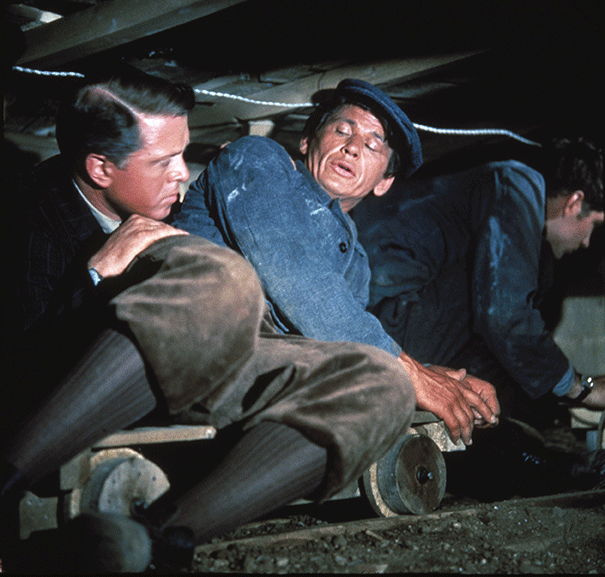
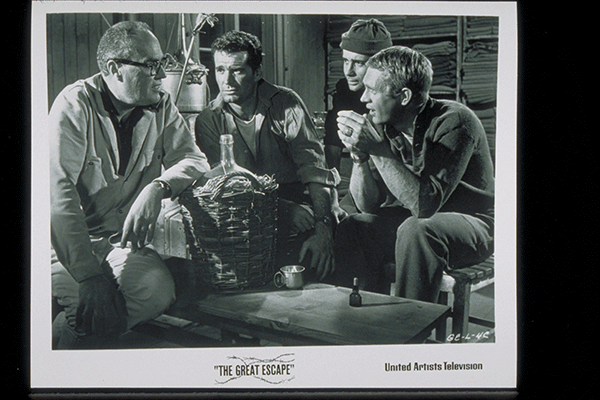 It's a classic movie but there are undoubtedly people who aren't familiar with the true story behind it. Could you explain a little bit about what the film is based on?
It's a classic movie but there are undoubtedly people who aren't familiar with the true story behind it. Could you explain a little bit about what the film is based on?
It was one of the largest break-outs from a German prisoner of war camp during World War II. It was a remarkable achievement as hundreds of men were involved, managing to complete one not just one tunnel but also to dig two more very long tunnels, way underneath the barbed war.
The plan was to give everyone fake ID and clothes and give them the chance to get across into neutral Switzerland. And a huge number of men escaped. Sadly, they were rounded up and lots of them were shot. A sad ending.
In the film it's fascinating because you have people from different Allied countries banding together. Was this a common occurrence in such camps?
Yes. Well, the Steve McQueen character is made up but in reality, the foreigners were the ones who could speak German, helping them ease their way across the border more effectively than the Brits. Clearly, they were Brits abroad. So, in fact it was the foreigners who had the best chance of making it out.
Given it's a Hollywood classic, how much of the film is dramatised and how much sticks to the facts?
You shouldn't watch it as a history documentary. The basic idea of a tunnel under the wire is accurate but that's it. A lot of it is embellished. And that's the thing about film-making. They have every right to embellish it, just as the pharaoh Rameses embellished the carvings on his temples in Egypt. That's what we all do. The story improves in the re-telling. We all do that in our personal lives.
You mentioned Steve McQueen having a big impact on you when you first watched it. Was his performance your favourite in the film?
Oh yeah, definitely.
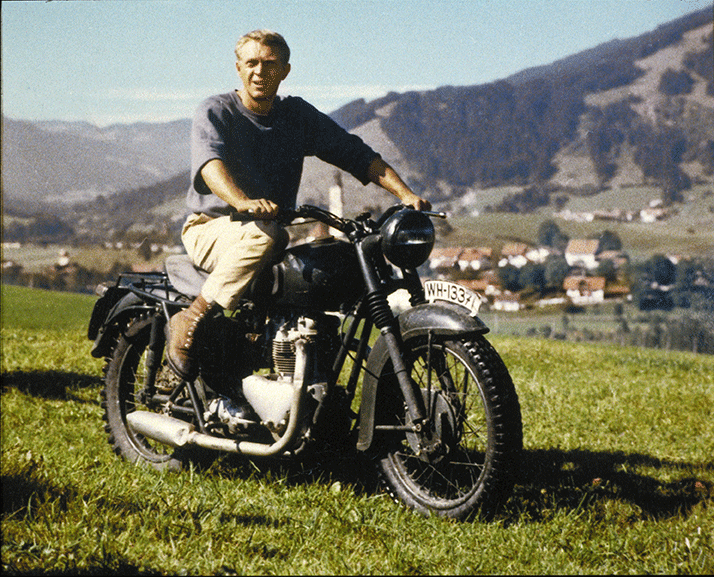
What was it about that character within the context of a wartime film that had such an impact?
Well, there's this organised myth that the Brits are stuffy and the Americans are a mixture of the relaxed and the gung-ho. And I just bought into that entirely when I was growing up. I perceived myself as stuffy and lacking confidence when talking to girls, and happened to think the myth was true. [laughs] I just loved McQueen's portrayal.
One of the most iconic aspects of the film is Elmer Bernstein's score. What is it about music that can establish a powerful connection to the past?
It's a really good question because the music of course has nothing to do with the period. Similarly, if you watch Gladiator, it's got an amazing Hans Zimmer score, but that orchestral sound is an 18th century orchestral sound. It's like classical music at its baroque peak, and it has nothing to do with what Romans would have performed.
It's just as anachronistic as putting house music or electronic music over it. So, Bernstein's music is drawn from the time the movie was made, but it champions what the men did and it's a beautiful thing. We should celebrate it.
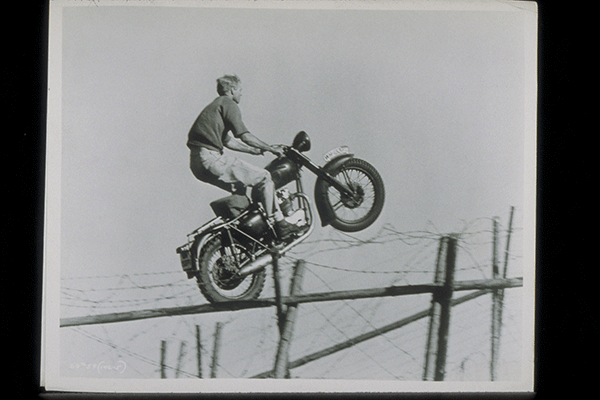
On the subject of the music, you're hosting the 75th anniversary screening of The Great Escape and you're accompanied by special guests the D-Day Darlings. What role do they play in connecting the traditions of the past to a modern audience?
Yes, they draw on music that people would have been singing at the time of the war in air raid shelters and so on. What the soldiers would have sang before going into battle and such. The D-Day Darlings are a reminder that while you've got Bernstein's soaring score, we've also got the people's music that speaks to the veterans.
You've touched on this to some extent already but when it comes to dramatisation of history, do you think it's better to religiously stick to the facts or to capture the emotional authenticity of what happened?
Being a history geek, I always think the closer the story is to the historical facts, the better the movie. But I also understand that artists have every right to embellish and give it their own take. I love films like Schindler's List, I love The Favourite. I liked Darkest Hour.
It doesn't matter how accurate they are. But I also like it when they go to great efforts. For example, Hilary Mantel's books, and the subsequent dramatisations of them. It's clear they've gone to great efforts to make everything accurate.
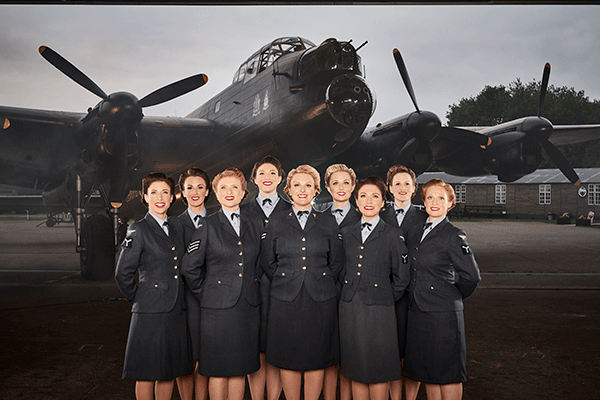
Why is it, do you think, that The Great Escape has endured for all this time? Because clearly there is something in the fabric of the movie that continues to connect with audiences.
I think it's about what the movie represents. The idea of struggling against hopeless odds and never giving up. Setting impossible, unimaginable goals like using the bed-boards, and using a few choice personal items to excavate a huge tunnel. It's like The Shawshank Redemption, or The Count of Monte Cristo. It's built on the idea that we can always get out from that wire that surrounds our life. It's also a lovingly made and deeply cool film.
Finally, what role does the Royal Air Force Benevolent Fund play in keeping the memory of the film alive?
Well it's important to remember that every single person in the Stalag Luft III camp had survived at least one air crash. At least once, if not two or three times. It seems unimaginable. They had to jump out of a plane that was on fire and parachute into enemy territory.
It's a reminder there are still veterans in our society who bear such trauma, who underwent such experiences, and they need to be looked after, and the Royal Air Force Benevolent Fund does that.
It's a sobering reminder of the reality operating away from the fantasy of the movie.
Yeah, of course. We now have veterans who served in Iraq and elsewhere, so the story continues.
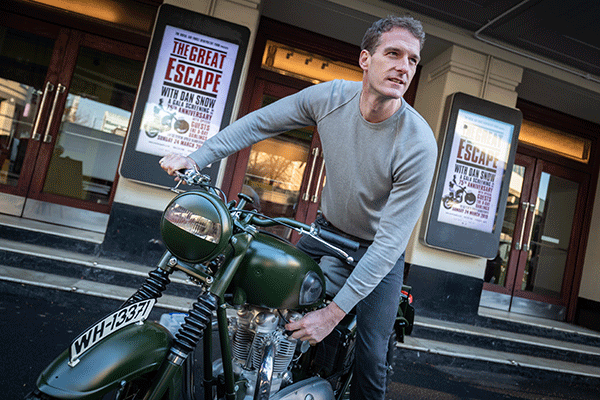
Click here to book your tickets for the 75th anniversary of The Great Escape, screening on Sunday 24th March. Got your own favourite scene or performance from this classic movie? Let us know @Cineworld.

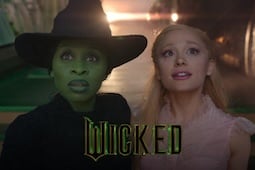
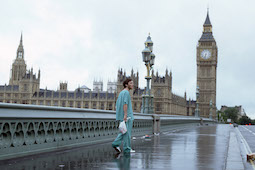

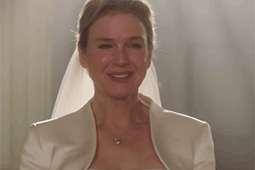
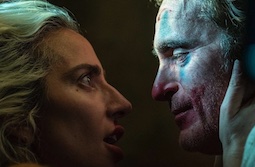
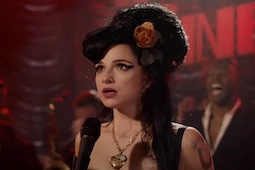

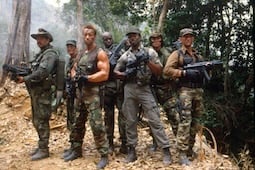





.jpg)
.png)



